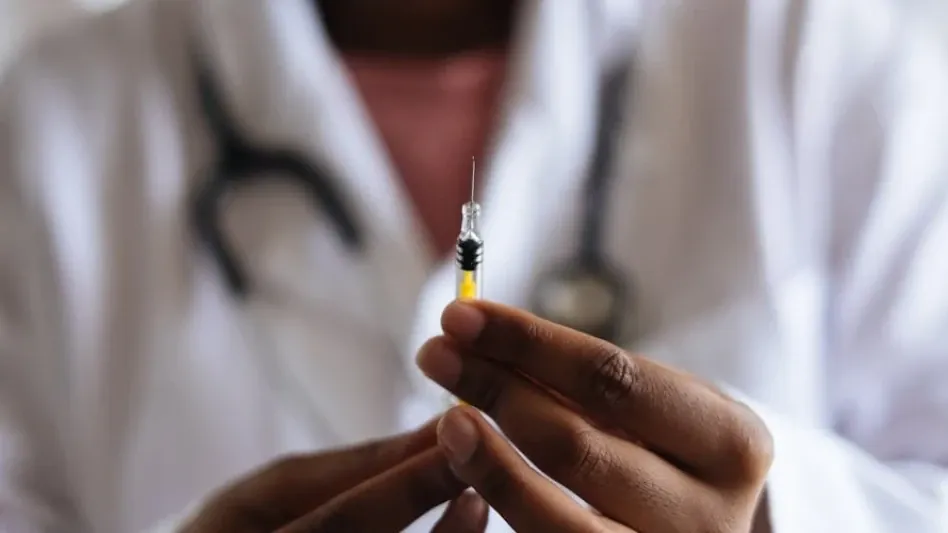The appointment of Robert F. Kennedy Jr. as the Secretary of Health and Human Services under President-elect Donald Trump has sparked significant controversy. Kennedy, a long-time vaccine skeptic, has cast doubt on the safety and efficacy of vaccines, a stance that many medical professionals find dangerous for public health. His skepticism even extends to questioning the polio vaccine, which is considered a cornerstone in the fight against a disease that once paralyzed or killed millions globally. This controversial viewpoint raises concerns about the potential impact on public trust and the effectiveness of the nation’s vaccination programs.
The Severity of Polio Before Vaccines
Lynn Lane’s harrowing story of contracting polio at age five underscores the severity of the disease before vaccines were available. Her journey through treatment included the prolonged use of an iron lung and numerous surgeries, highlighting the critical importance of the polio vaccine in preventing such outcomes. Lane, who now suffers from post-polio syndrome, expresses strong frustration at any suggestion of doubting the vaccine’s efficacy. Her experience serves as a powerful reminder of the devastating impact of polio and the essential role of vaccines in combating it.
The polio vaccine has been a life-saving measure, drastically reducing the incidence of a disease that once caused widespread fear and suffering. The narrative of individuals like Lane emphasizes the drastic improvements in public health achieved through widespread immunization. Before the vaccine’s introduction, polio outbreaks were common, and the disease’s consequences included paralysis and death. These stories highlight the importance of maintaining high vaccination rates to prevent a resurgence of such debilitating and life-threatening diseases.
Controversy Over Vaccine Safety
The controversy surrounding vaccine safety intensified when the New York Times reported that Aaron Siri, an attorney and advisor to Kennedy, petitioned the Food and Drug Administration (FDA) to study the safety of the polio vaccine further against an unvaccinated control group. This petition effectively called for its reevaluation, stoking fears and backlash from various public figures and medical professionals. Many experts argue that revisiting the safety of a well-established vaccine undermines public trust in the entire vaccination process and may incite unwarranted fear.
In defense, Kennedy and Trump publicly reassured that they support the polio vaccine. However, Trump’s comments on the debunked link between childhood vaccines and autism, promising further investigation, add to the concerns. According to experts, including pediatrician and former California state senator Richard Pan, this fear-mongering is unnecessary and harmful as it perpetuates discredited myths. Pan believes that spreading misinformation about vaccines only serves to undermine public health initiatives and could lead to lower vaccination rates, which in turn could result in outbreaks of preventable diseases.
The Debunked Autism-Vaccine Link
Pan cites the extensive research debunking the alleged link between vaccines and autism, a rumor starting from a since-retracted 1998 study by Andrew Wakefield, which falsely implicated the measles, mumps, and rubella (MMR) vaccine. He stressed that playing with such myths risks children’s health and undermines public trust in vaccines. The persistence of these myths, despite overwhelming scientific evidence to the contrary, poses a significant challenge to public health efforts.
The spread of misinformation can lead to decreased vaccination rates, putting communities at risk of preventable diseases. This is particularly concerning given the efforts that have gone into eradicating many once-prevalent illnesses. The damage caused by these myths is not limited to individual health; it has broader implications for public health. Lower vaccination rates can result in reduced herd immunity, making it easier for diseases to spread within communities and posing a risk to those who are unable to be vaccinated due to medical reasons.
The Importance of Widespread Vaccination
The article emphasizes the significance of widespread vaccination in eradicating diseases like polio in the U.S., cautioning that refusal to vaccinate could lead to a resurgence. This warning was exemplified by a 2022 case in New York, where an unvaccinated man contracted polio and a new instance in Gaza, confirming that the disease remains a threat in parts of the world. These cases highlight the ongoing importance of vaccination programs and the risk posed by vaccine skepticism.
Dr. Pan criticizes the petition for further testing of the polio vaccine on an unvaccinated control group, arguing that it would be unethical to withhold a life-saving treatment from children. Kennedy’s calls for such measures are viewed as endangering public health for baseless conspiracy theories. The ethical implications of such actions are profound, as withholding proven vaccines from children would expose them to unnecessary risk and undermine decades of public health progress.
The Consensus on Vaccine Safety
Robert F. Kennedy Jr.’s appointment as Secretary of Health and Human Services under President-elect Donald Trump has ignited substantial controversy. Kennedy, known for his long-standing skepticism about vaccines, has frequently questioned their safety and effectiveness, a position that many medical experts regard as dangerously misleading for public health. This skepticism includes doubts about the polio vaccine, which is widely recognized as crucial in the global fight against a once-devastating disease that caused paralysis and death for millions. His controversial views lead to significant concerns regarding the potential adverse effects on public confidence in vaccines and the overall effectiveness of national immunization programs. Under Kennedy’s influence, there is apprehension that his anti-vaccine stance might undermine years of progress in public health, weakening efforts to control preventable diseases. This appointment raises critical questions about the future direction of health policies and the potential challenges in maintaining high vaccination rates essential for community immunity.









